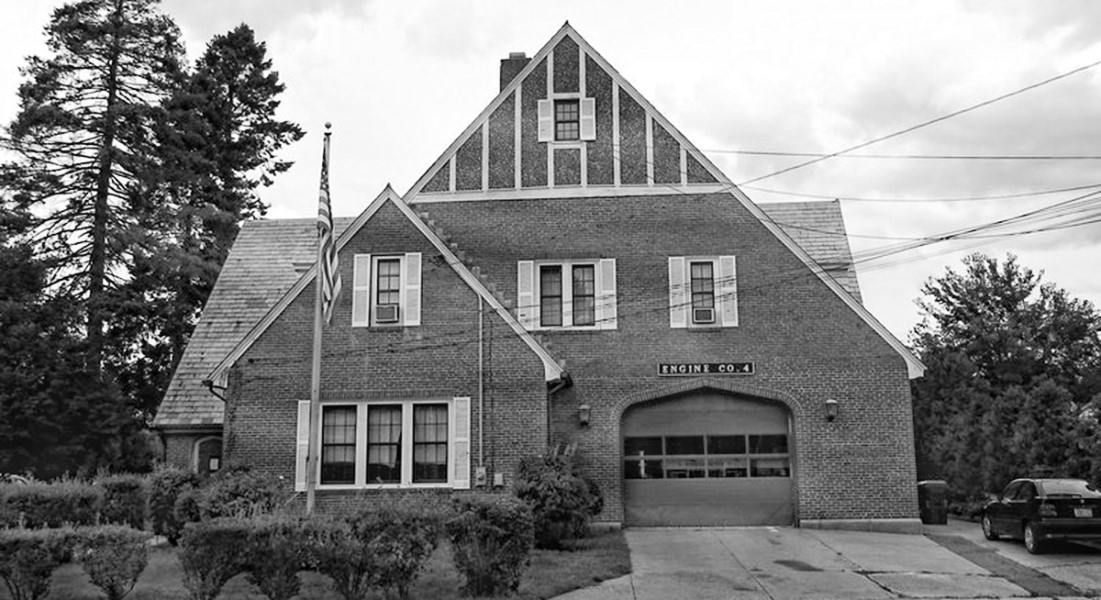Legacy for a firehouse
The Rochambeau Avenue Fire Station is now history. It housed its last shift on Saturday, Jan. 7, 2017. Passersby on Sunday morning saw the once lively station closed and dark.
Although I have not lived on the East Side for a number of years, the news of the firehouse’s closing left me with a feeling of sadness akin to a dear friend moving away.
The Fire House and Engine Company 4 were part of the fabric of the East Side I knew. Opened in 1929, the brick station fit neatly into the neighborhood. It did not intrude. The building was not so large that it overpowered the nearby houses, and, like many of them, it had a small yard that was always kept neatly mowed.
In the warmer months, when not answering a call, the firefighters played horseshoes in the yard – and took the time to demonstrate the skills required for the game.
At noon each day, the sound of a siren emanated from the fire station. Originally installed as a civil defense measure to warn of possible airstrikes during World War II, the siren’s purpose changed after we entered the nuclear age: It had to be in good working order to warn of atomic bomb attacks.
As this threat receded, the daily test at noon lost any tinge of fear and became part of the normal day. Siren? It meant time for lunch. Or, time to check your watch to see if it was running fast or slow (that was before the digital age made timekeeping simpler). Or, just the feeling that we were all OK.
The nearby neighbors also heard another regular alarm. On Saturdays, “like clockwork,” one said, at 7 a.m., the firefighters tested the siren, horn and lights on their equipment. It was a quick intrusion and over quickly enough so one could go back to sleep or get up and face the world.
The firehouse was also our voting station. It was appropriate, in a symbolic way: The fire company was a visible facet of the government’s role in keeping the citizenry safe, and we came to their house to select the representatives who would make up that government. The fire company and the voting process were important lessons in civics for the children who regularly accompanied us when we voted.
For the children who lived nearby, the fire station was a place of wonder – the bright red truck, the hoses and gear, the shiny pole in the corner, and the bubbler that always spouted cold water. It was a welcome oasis for youngster Lee Teverow after working up a sweat playing outside, and much more fun than going home for a drink.
Occasionally, the children were welcome to sit in the truck and pretend to be speeding to answer a call.
Two of the people I contacted for this article, now parents of children of their own, remembered the joy and thrill of the one time they were allowed to climb the ladder to the upper story and slide down the shiny pole.
And they all remembered kindness, never cross words. When the firefighters noticed a boy who was always outside by himself, they took the time to play ball with the lonely child.
Philip Teverow recalled running to Captain Farmer for help in tying his tie as he got ready for Shabbat services on a day when his father was not at home. And when Joseph Teverow suffered a heart attack, the firefighters came over to plow after a snowstorm.
Those who lived in the shadow of the Rochambeau Avenue Fire Station knew firsthand the firefighters, who were friends in word and deed. For 87 years, the station was an integral strand in the fabric of a Providence neighborhood in which our Jewish community was and still is a part.
GERALDINE S. FOSTER is a past president of the R.I. Jewish Historical Association. To comment about this or any RIJHA article, contact the RIJHA office at info@rijha.org or 401-331-1360.








